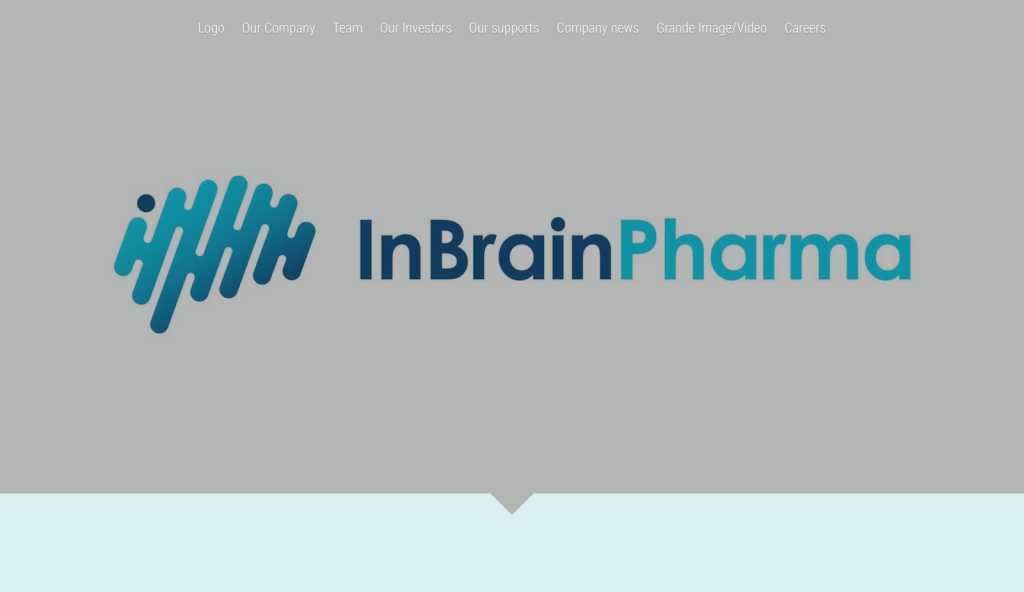InBrain Pharma Raises $2M+ to Advance Precision Therapies for Neurological Disorders
July 14, 2025
byFenoms Startup Research

InBrain Pharma, a pioneering biotech startup focused on next-generation neurological therapies, has raised $2,000,943 in new funding to accelerate its clinical and research pipeline. While the round’s investors remain undisclosed, the capital represents a key milestone in InBrain’s mission to develop targeted, high-precision treatments for conditions affecting the central nervous system (CNS).
Led by Dr. Véronique Foutel, InBrain is working to deliver smarter, safer, and more adaptive therapies for some of the most complex and underserved brain conditions - ranging from Parkinson’s disease to treatment-resistant depression.
Rethinking the Brain: Targeted Therapeutics for Complex Conditions
InBrain operates at the intersection of computational pharmacology, neurobiology, and adaptive drug delivery. Traditional CNS drugs typically rely on broad-acting molecules that affect multiple systems at once, leading to a high rate of side effects and poor patient outcomes. InBrain is taking a radically different path by developing compounds that target specific neural circuits and receptor families, guided by real-time biomarkers and AI-driven modeling.
This approach is not only more precise - it’s potentially transformative for chronic brain disorders where current treatments are either ineffective or carry severe trade-offs.
“The brain is delicate. It requires elegance, not brute force,” said CEO Dr. Véronique Foutel. “We’re here to build therapies that are intelligent, responsive, and patient-specific.”
This precision focus is especially vital in CNS drug development, where the failure rate is notoriously high. According to BIO Industry Analysis, only 6.2% of neurological drug candidates that enter clinical trials make it to FDA approval - one of the lowest success rates in biopharma.
That’s why InBrain’s model doesn’t just innovate - it increases survival odds.
And that’s the ultra value drop for founders: In complex biotech verticals, precision equals speed, and speed equals survivability. InBrain isn’t just making better drugs - it’s building a system that can reduce experimental noise and learn faster. Founders working in high-failure-rate industries should ask: Are we creating systems that adapt and inform our next move? Because long-term success is rarely about one big win - it’s about compressing the cost of iteration.
A Growing Market with Massive Unmet Needs
The market opportunity in neuroscience is vast and accelerating. The global neurological disorder treatment market was valued at $88.6 billion in 2022 and is projected to reach $135 billion by 2030, according to Fortune Business Insights. This surge is driven by rising global incidences of neurodegenerative diseases, mental health disorders, and an aging population.
More than 1 billion people worldwide suffer from some form of neurological condition, according to the World Health Organization. These include Parkinson’s, Alzheimer’s, multiple sclerosis, epilepsy, stroke-related damage, and a range of neurodevelopmental disorders. Despite these figures, CNS-focused R&D has historically been underfunded due to complexity, high attrition, and limited biomarkers.
However, this is changing. The industry is seeing a shift toward data-enriched drug design, computational modeling, and precision-targeted therapies - all areas where InBrain has built early traction.
The Vision Behind InBrain Pharma
Dr. Foutel, a clinical neuroscientist with decades of translational research experience, founded InBrain to fill the gap she saw across big pharma and academia: brain treatments lacked precision and failed to evolve with patient data.
Under her leadership, InBrain is developing a portfolio of adaptive CNS drug candidates. These are supported by a backend platform that integrates machine learning models for compound optimization and dynamic dose-response adjustment systems.
In the long run, the company plans to develop closed-loop therapies - where patient brain signals can guide drug delivery in real time. This would allow treatments to adjust based on neural activity, enabling better long-term control of chronic disorders.
Where the Funding Will Go
InBrain will use its new $2M+ in funding to:
- Advance two lead compounds into IND-enabling studies by late 2026
- Build out its pharmacology, AI, and regulatory teams in France and Switzerland
- Enhance its AI platform for compound screening and receptor modeling
- Apply for orphan drug status in select indications (e.g., rare epilepsies and neuroimmune syndromes)
- Initiate collaboration with academic hospitals for preclinical data sharing and early-stage trial design
The funding also allows InBrain to formalize its regulatory roadmap for EMA and FDA filings, positioning itself for transatlantic trials.
Industry Tailwinds and Investor Momentum
Global investment into neuroscience startups has been steadily increasing. According to PitchBook, CNS-focused startups attracted over $3.2 billion in venture capital in 2023, with a growing share going toward platforms that integrate software, adaptive delivery, and AI-guided drug discovery.
InBrain’s model reflects this shift. It combines the rigor of biotech with the scalability of a tech-first mindset - focusing on reproducibility, iteration speed, and modular drug design.
This hybrid approach resonates with both institutional investors and clinical partners looking for next-generation CNS solutions.
What’s Next for InBrain Pharma
With preclinical studies underway, InBrain will spend the next 18 months building a foundation for human trials. Its goals include publishing early biomarker findings, validating dosing frameworks, and expanding relationships with leading neurologists, computational biologists, and regulatory advisors.
As the biotech world increasingly prioritizes adaptive, patient-specific, and algorithmically informed treatments, InBrain stands poised to lead neuroscience into a new era - where the brain is no longer treated generically, but with precision tailored to its complexity.
“To move the needle in neuroscience, you don’t just need innovation,” said Dr. Foutel. “You need reverence for the brain. Precision is how we show it.”









